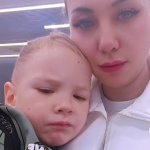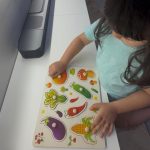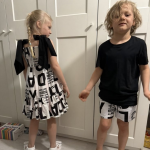A Child with Autism is Obsessed with Collecting
Autism and collecting are often linked, as individuals diagnosed with the disorder frequently show deep interest in specific themes or activities, one of which is collecting various items. This phenomenon is a result of neurodiversity and often serves as an important element of self-regulation, self-identification, and comfort. Key aspects can be outlined:
- Presence of Special Interests
- Many individuals with autism tend to have only a few specific interests that persist over time. Collecting anything (stones, figurines, books, stamps) can be an expression of such an interest.
- A collection helps structure the world, creating predictability and order, which is particularly valuable for those who are sensitive to sensory overload or uncertainty.
- Special Sensory and Cognitive Characteristics
- The process of collecting—tactile exploration, visual organization, and sorting of items—can satisfy sensory needs.
- The attention to detail and systematic organization of collections often align with the analytical thinking and attention to detail that many autistic individuals display.
- Collecting is Useful for Improving Emotional Regulation
- It serves as a way to reduce anxiety or stress, providing a sense of control and security.
- Studying and periodically reviewing the collection helps “recharge” in emotionally overwhelming situations.
- Development of Social Skills
- Collections can serve as a reason to connect with like-minded individuals and maintain communication. Autistic individuals often feel more comfortable engaging online, though over time, they may become more at ease with in-person interactions.
- It’s important to note that any such interest may be perceived by others as obsessive, especially if there are difficulties shifting to other topics during conversations.
- Potential Problems
- An excessive obsession with collecting can interfere with daily tasks (study, work, self-care, and normal life in general).
- Social stereotypes can cause harm, as people may view an interest in “childish” or unusual items as eccentric and ridicule the collector.
- Financial and space limitations: Uncontrolled collecting can lead to the accumulation of unnecessary items and excessive spending on acquiring them. In such cases, it’s no longer just an interest, but a dependence.
- Preventing Negative Outcomes
- It’s essential to respect the interests of the autistic individual and not dismiss the collection as “trivial,” even if it seems unusual—it is a part of their identity.
- To avoid dependency, support in maintaining balance is needed—gently encourage combining the primary hobby with other areas of life.
- Special interests can be used in education—collections can be integrated into developing communication skills, learning mathematics, history, and other subjects.
- The autistic individual may also need assistance in organizing space—creating storage systems with shelves, albums, or catalogs. This will help tidy up and, in turn, reduce anxiety levels.
It’s important to remember that the desire to collect is not a universal trait of autism but rather one of the individual characteristics of people with neurodevelopmental disorders. For some, it remains a mere hobby, while for others, it becomes a true passion that influences their quality of life. Therefore, it’s crucial to consider the specific needs of the individual, and if collecting doesn’t limit their horizons, slow down development, or negatively affect their everyday life, it should be accepted as a positive feature, not a symptom.
Undoubtedly, there are many collectors among neurotypical people as well. However, they don’t encounter the same challenges in their development, unlike autistic individuals, who can be helped by eliminating their disorder and reducing the intensity of its manifestations. This can be achieved through cell therapy—a modern and reliable technology based on stimulating the body’s regenerative capabilities.
Cell therapy involves the transplantation of the patient’s own stem cells, which eliminates the risk of rejection due to the absence of an immune response.
Stem cells are non-specialized and have the unique ability to transform into any other cells that make up all organs and tissues. During this transformation process, they identify damaged cells that cannot function normally and replace them with healthy counterparts. Changes are noticeable soon after the procedure, as the brain and nervous system begin to properly perceive and respond to incoming information.
This leads to normalized behavior, accelerated overall development, skill acquisition, and a decrease in the severity of symptoms or their complete elimination. These changes are long-term and often last a lifetime, enhancing the effectiveness of other corrective measures.
Cell therapy, which was developed relatively recently, was initially considered experimental and risky. However, its effectiveness, especially compared to traditional methods, safety, and naturalness have led to its widespread recognition. In the future, it could become the primary method for combating autism spectrum disorders and their symptoms. A telling fact is that it is already used by the best clinics worldwide.
One such clinic is the Mardaleishvili Medical Center, where extensive successful experience in stem cell transplantation has been accumulated. The clinic’s doctors are highly qualified specialists and have the latest equipment to achieve the most positive results. Treatment meets the highest global quality standards while being more affordable than abroad. Additionally, the center’s staff offers comprehensive support in planning trips, arranging accommodations during rehabilitation, and handling other logistics.
Undergo cell therapy—an opportunity to begin a fulfilling life!
Autism Treatment Center Videos
Autism treatment with own stem cells
Cord blood association congress
International Quality Crown
Autism Treatment Reviews
Autism treatment with own stem cells
The story of Alessandro (6 years old)
Autism Patient Testimonial - Stem Cell Treatment
Clients Testimonials

Lidiya — Elina’s mother Read More

Anna – Sasha’s mother Read More

Amirkhon’s father — Tokhir Read More

Dilana’s mother Read More

Irina and Stefan – Ilya’s parents Read More












